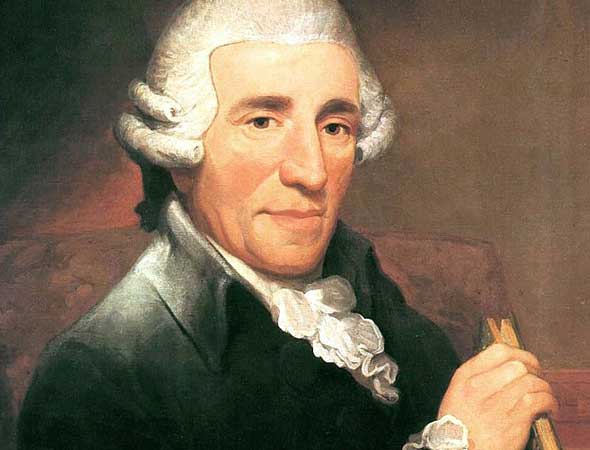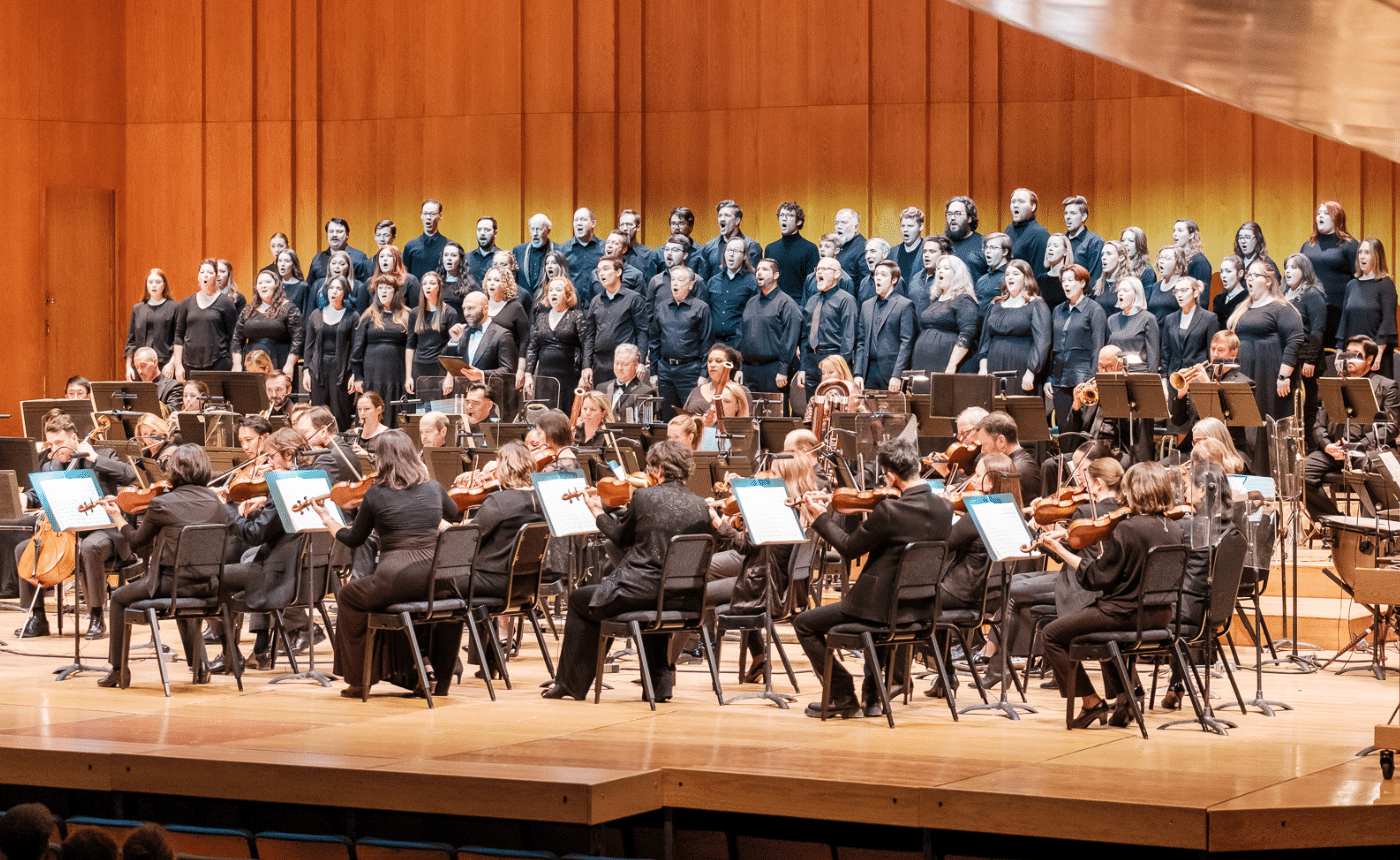HAYDN: Symphony No. 88
by Jeff Counts
THE COMPOSER – FRANZ JOSESPH HAYDN (1732-1809) – During his long service to the Esterhazy family, Haydn was often able to visit Vienna on personal business during the court’s residencies at Eisenstadt, which was much closer to the capital than the main palace in Hungary. Haydn cultivated many friendships in Vienna, including one with Mozart. Though the depth of their relationship has perhaps been exaggerated (Mozart did write his “Haydn” quartets during that time, so…), the two men clearly had significant influence on one another throughout the 1780s. Notably for Haydn, this was the decade in which he began to write symphonies not just for work, but for the world.

THE HISTORY – Haydn’s musical conquest of London was still a few years away in 1787, but he was already acquainted with audiences, and markets, abroad. Haydn had earlier sent a total of six symphonies (Nos. 82-87) to Paris on commission from the Count d’Ogny and Les Concerts de la loge Olympic. That Masonic presenting organization boasted one of the Europe’s finest orchestras and the half-dozen works Haydn wrote for it were received with great enthusiasm by French listeners. Four of the Paris symphonies got nicknames, in fact, a sure sign for any Haydn work that it was meant to last and a testament to the high regard he commanded outside of Austria. In short, Paris loved Haydn. Which is why he was so keen to send a couple more symphonies their way in 1788. Their success in that savvy city was virtually guaranteed. Too bad he chose such an unreliable courier in Johann Tost. Tost was a violinist in the Esterházy orchestra from 1783 to 1788 and was, by all accounts, a bit of a rogue in those days. Haydn trusted him though and, in addition to dedicating the Op. 64 String Quartets to him, he allowed Tost to take his two latest symphonies (Nos. 88 and 89) to Paris with an instruction to sell them at the best possible price. Well, Tost did that, and more. When he wasn’t courting rich ladies, Tost like to play fast and loose with publishers. While in Paris to make deals for the two symphonies, he attempted to sell a third. A third? Tost hoped the fact that the additional work was written by Adalbert Gyrowetz, not Haydn, would go unnoticed, but it did not. Soon after, Tost found his wealthy widow, married her, and started a lucrative cloth business in Vienna. Haydn, for reasons unknown, apparently forgave him. For all this drama, or maybe because of it, No. 88 remains one of Haydn’s most popular non-London symphonies. H.C. Robbins Landon called it “an inspired work from beginning to end, containing every contrapuntal, melodic and instrumental invention Haydn knew.” At least Tost had good taste.
THE WORLD – Elsewhere in 1787, the United States Constitution was signed, Turkey declared war on Russia and 11 shiploads of convicted criminals left Great Britain with the intention of establishing a penal colony in Australia.
THE CONNECTION – Though many Haydn Symphonies have been programmed in recent years, No. 88 has not appeared on a Utah Symphony concert since January 1999. Joseph Silverstein conducted.











